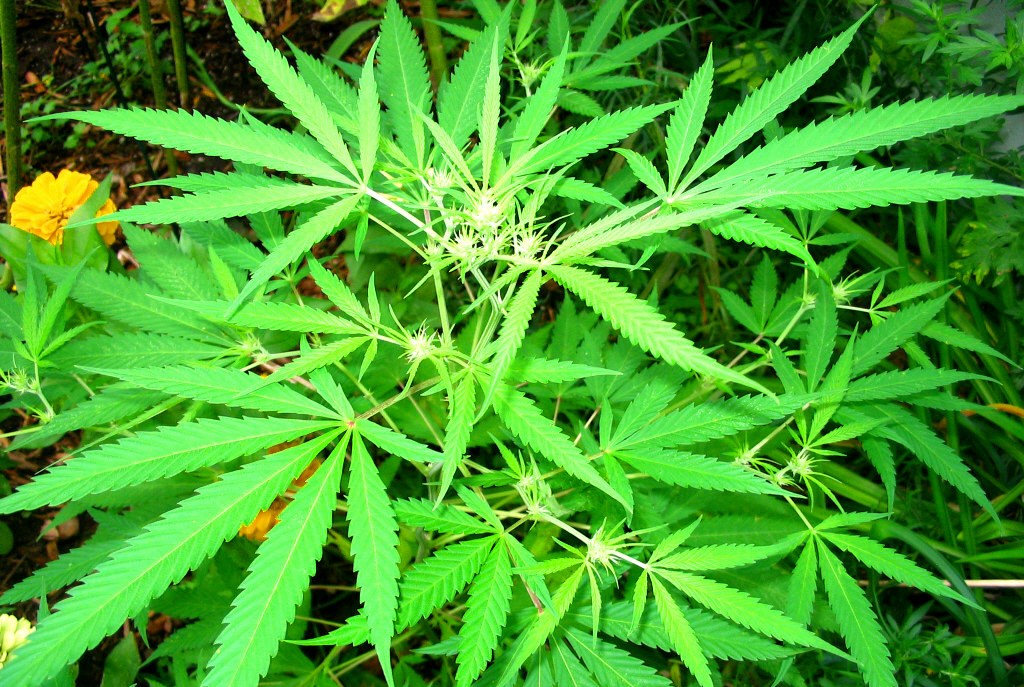Wisconsin Lawmakers Propose Cannabis Regulation Overhaul
Alcohol's three-tier system could be coming to CBD industry. Industry members are concerned.

Hemp. Photo is in the Public Domain.
A bill moving through the Wisconsin State Assembly would impose stricter regulations on hemp-derived cannabinoid products, tightening the state’s largely unregulated market as the federal government moves toward far stricter regulations.
On Wednesday, the Assembly Committee on State Affairs voted in favor of a proposal that would rename the Division of Alcohol Beverages as the Division of Intoxicating Products and expand its authority to include the regulation of hemp-derived substances.
The bill would allow hemp-derived products in six forms—single-serve beverage, multi-serving beverage, tincture, edible, inhalable product and absorbable product through the skin—while applying many of the same rules as alcohol, including the minimum purchase age, DUI and open-container laws, the legal intoxication limit and a 2 through 6 a.m. sales cutoff. It would also impose an occupational tax, require establishments to obtain permits and set rules for product testing, labeling, potency and packaging.
Local industry leaders have raised alarms over the measures, particularly the new oversight, which would establish a three-tier system requiring manufacturers, distributers and retailers to operate independently.
For seed-to-store companies like Canna Bloom Farmacy, the change carries dramatic effects. “Everything would go through the alcohol distributors—we would no longer be able to own a retail space,” said co-owner Stephanie Lembke, adding that small farms and producers would be hardest hit.
Lembke and her business partner, Justin Letizia, traveled to the Capitol in early November to testify against the bill, which was introduced last month by Rep. Rob Swearingen, (R-Rhinelander) and 16 other Republicans. Senator Brad Pfaff (D – Onalaska) was the sole Democratic co-sponsor. The bill passed the committee 6-3. It now heads to the full Assembly, which must schedule it for a vote.
The three-tier system has existed for alcohol distribution in Wisconsin since the repeal of Prohibition. Like alcohol purveyors, hemp companies can sidestep the three-tier system by selling products on the manufacturing premises, the same as breweries, wineries and distilleries.
Lembke pointed to a key difference between the industries: product range. “Distributors don’t want to carry gummies, vapes and all that other stuff,” she said.
Rep. Christine Sinicki, (D – Milwaukee), echoed that during the Wednesday committee meeting, saying she could be on board with liquids in the three-tier system, but that other products don’t belong.
“It became apparent to me and several others that there needs to be more talks done,” Sinicki said. “With all due respect, I know you said you talked to stakeholders, but it seems like the farmers, the manufacturers, the retailers were not part of those discussions.”
The state legislation coincides with a provision in the federal funding package—which facilitated the government’s reopening on Wednesday—that would significantly limit the sale of intoxicating products.
“We do need side rails—we need rules,” said Rep. John Spiros, (R – Marshfield), calling the bill a work in progress. “I believe in good actors. I believe in bad actors we need to remove and, honestly, get rid of. And whether they lose part of their business and people, they chose to do something that wasn’t correct in the first place and they knew it.”
Others in the hemp industry are wary of sharing oversight with the alcohol industry, which has strong influence over state policies.
“We do a lot of business in the beverage space, but we feel that these bills that are produced on the state side give too much control over to the alcohol industry and the Tavern League of Wisconsin,” Letizia said, adding that the federal bill complicates his stance. “It’s a very nuanced situation, and we don’t even quite know what we’re hoping for at this point. If the federal ban does go through, we may want the state bill to proceed, even though we’re kind of wishy-washy on it.”
Keefe Olig, co-owner of TerraSol Dispensary, argued in favor of an alternate route: legalizing marijuana. In a letter sent to state representatives last month, he touted potential benefits such as increased safety, education, quality testing and tax revenue.
“Both sides care about safety, the issue is how to accomplish this,” Olig wrote. “There’s a belief that by not legalizing marijuana, it means safety to the consumer by limiting its access. The cold truth is marijuana has been in our state our entire lives. This includes before any state passed legalization.”
With “sensible legalization,” Olig said, demand for the illegal market would plummet, leading to safer circumstances overall.
If passed by the Assembly, the bill still requires approval from the Wisconsin State Senate and Governor Tony Evers.
If you think stories like this are important, become a member of Urban Milwaukee and help support real, independent journalism. Plus you get some cool added benefits.






















70% of Wisconsin residents are in favor of legalizing Cannabis either for medical or recreational use. How does the Assembly respond? They want to tighten regulations. And Republicans wonder why they loss so badly November 4th.
I’ll make simple enough that a 5th grader could understand. You are NOT listening to the people, YOUR constituents. Big Pharma and Big Ag cannot vote for you in 2026. The voters will be all the citizens you have screwed.
The three tier system has worked so well for alcohol. I can only imagine it’d be just as successful for cannibis regulation. . This is just a way to shunt money from a successful industry into their friends’ pockets. Disgusting.